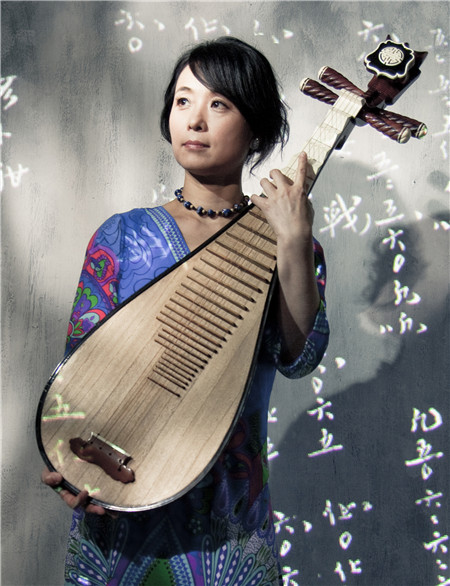 |
|
Wu Man performs with the Silk Road Ensemble at the Mondavi Center at the University of California in 2011. [Photo by Max Whittaker/China Daily] |
She began regularly returning to China since 2008 for her Borderlands project, which seeks to explore the instrument's origins.
This mission brought Wu to the Xinjiang Uygur autonomous region, Shaanxi province and Central Asia, where the instrument originated along the Silk Road-the ancient trade route that once linked Europe and Asia.
Her research has also been accompanied by tours with musician friends, funded by the Aga Khan Music Initiative in Central Asia, over the past six years. She and these musicians released the album Borderlands: Wu Man and Master Musicians from the Silk Route in 2012.
She plans to bring the project back to China for the first time since with a 12-city, 22-day tour that will start in Shaanxi's capital,Xi'an, in May. Wu will then continue on to such cities as Shenyang, Dalian, Beijing, Suzhou and Wuhan.
She will be joined on the tour by tanbur virtuoso Siro-jiddin Juraev from Tajikistan, Bishkek-based komuz player and composer Askat Jetigen Uulu, and Italian percussionist Andrea Piccioni.
Wu met Juraev 15 years ago, when they were performing on the Silk Road Project that Yo-Yo Ma initiated in 1998.
She met Piccioni in 2016 while performing in Geneva. The upcoming tour will be the first time she is working with Uulu,who is in his early 20s.
"I want to present musicians from different countries and generations. They're great contributors to world music, and I believe Chinese audiences will be enchanted by their songs and instruments," says Wu.